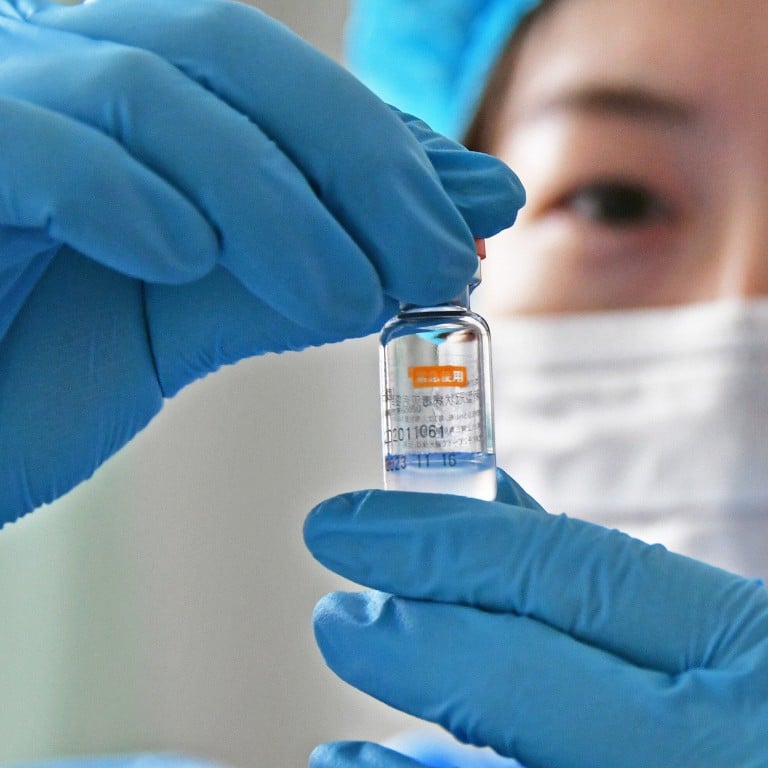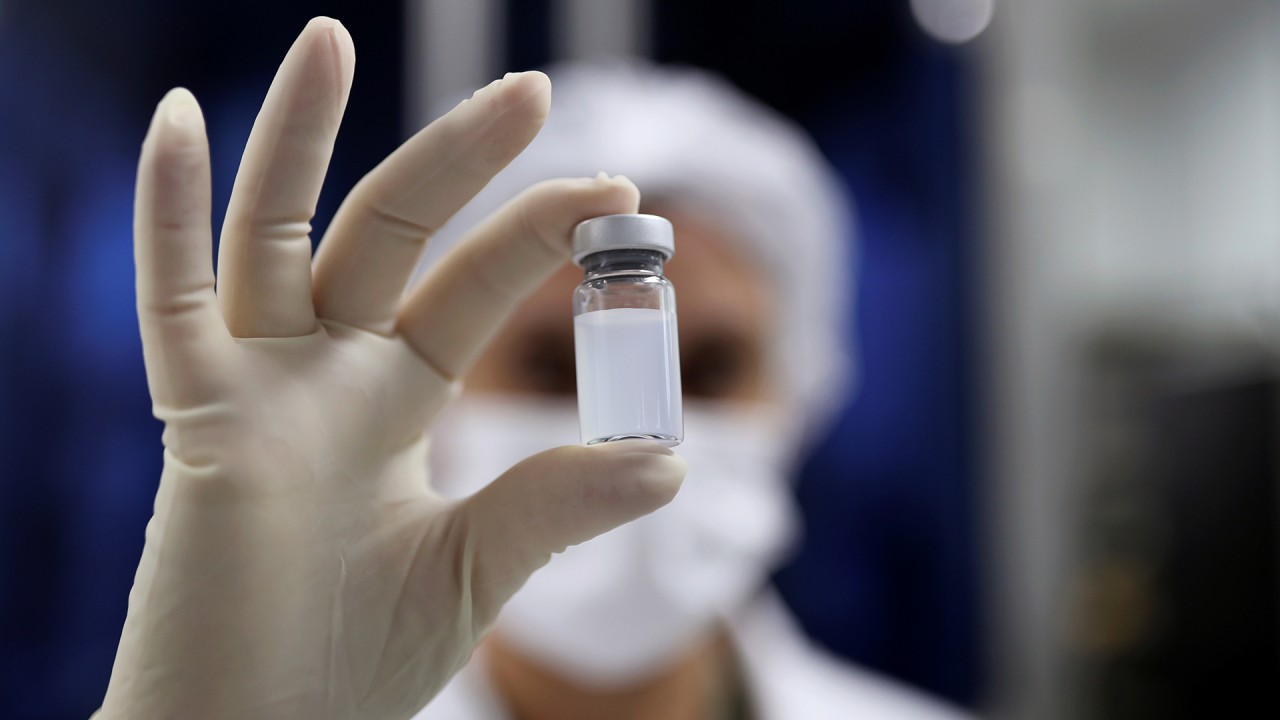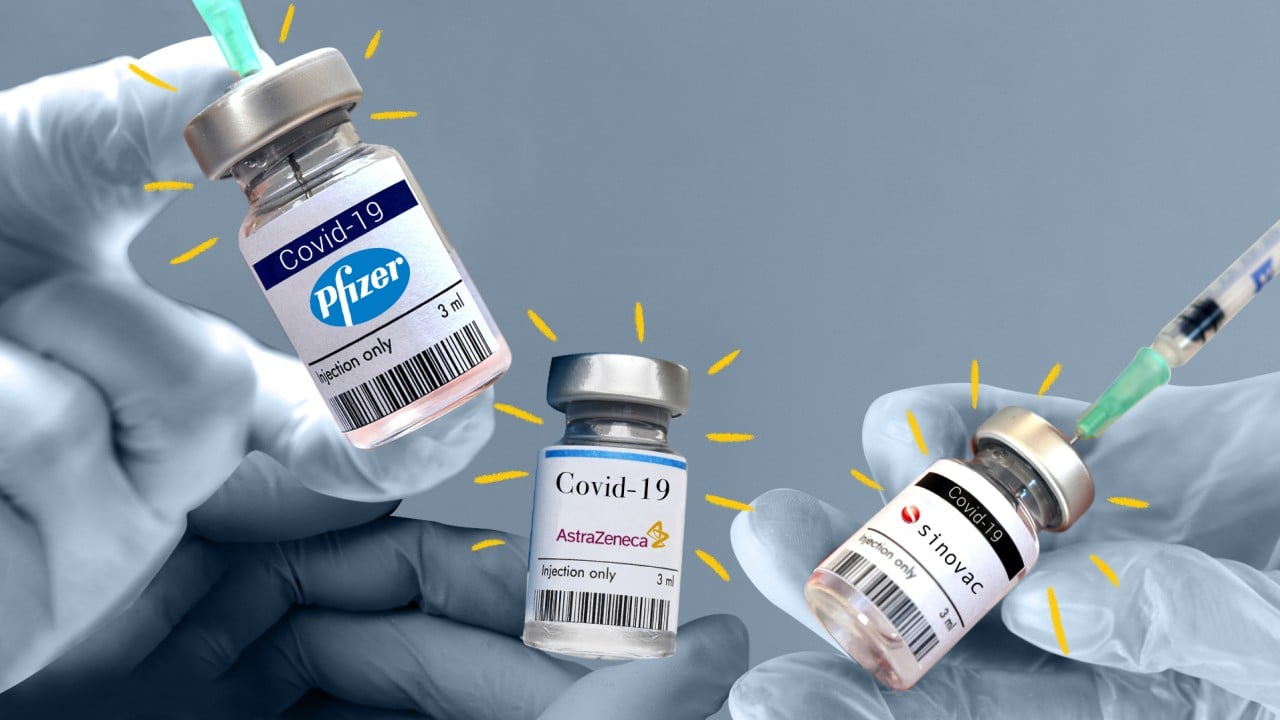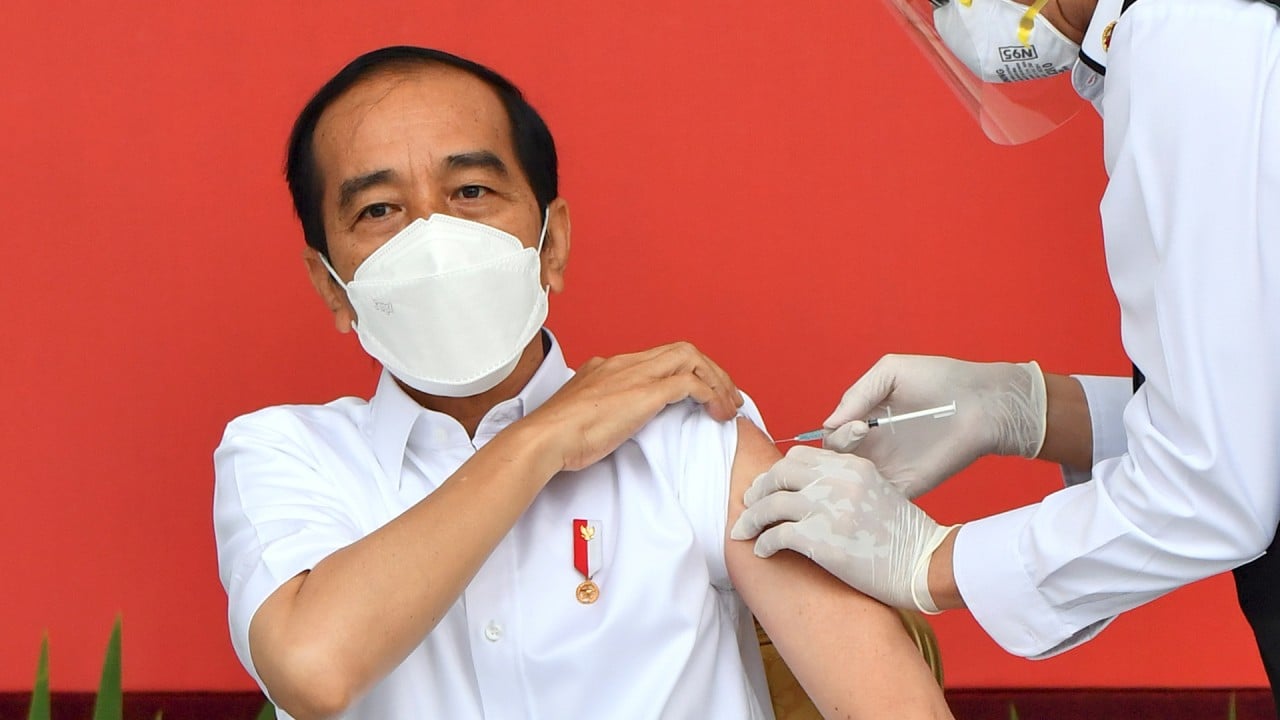
Explainer | What do the Sinovac coronavirus vaccine efficacy results mean?
- The company and its Brazilian partner have released confusing numbers for the effectiveness of CoronaVac in clinical trials
- The data is essential for regulators to determine whether they should approve the vaccine for use
Questions have been raised over the effectiveness of a coronavirus vaccine developed by Chinese drug maker Sinovac Biotech after a partner science institute in Brazil, where phase 3 clinical trials are under way, released lower-than-expected efficacy results for the vaccine.
So what do the numbers mean?
Is CoronaVac still effective?
The institute said the vaccine was 50.4 per cent effective in preventing Covid-19 with symptoms ranging from mild to severe. The figure, which indicates how effective a vaccine is in trials, just meets the 50 per cent minimum threshold required by most regulators around the world, but is lower than the 70 per cent recommended by the World Health Organization (WHO).
The final efficacy rate may be a little higher than 50.4 per cent after the company factors in clinical trial data from Indonesia and Turkey. Turkey has said that the vaccine was found to be 91.2 per cent effective based on a study of 1,322 people, but that trial is small compared with the Brazil trial of 12,500 people.
Each trial is designed differently so direct comparisons of efficacy rates are not possible but they are good general references in understanding the vaccine’s effectiveness.

02:29
Brazil study shows China’s Sinovac vaccine less effective than earlier data on the Covid-19 shots
How does CoronaVac compare with other vaccines?
The advanced mRNA vaccines developed by Pfizer-BioNTech and Moderna have the highest efficacy of around 95 per cent, but their side effects are stronger. The vaccine developed by Oxford-AstraZeneca has an efficacy rate of about 70 per cent, which could be higher after dose adjustments.
State-owned Sinopharm said its vaccine had an efficacy rate of 79 per cent but the company has not said how it reached that number.
CoronaVac may not be as good as other options but is still useful. Most scientists were expecting first-generation vaccines to be similar to flu shots which in general have an efficacy rate of around 50 per cent, meaning they can stop half of the recipients from getting sick.
The expectations were raised after the surprisingly good results from Pfizer and Moderna.
Sinovac and the Butantan Institute said CoronaVac was found to be 100 per cent effective in preventing severe cases of Covid-19 because no recipients became seriously sick. While the trial has not amassed enough cases for the figure to be statistically significant, some scientists said that was still encouraging. So far all the vaccines available – the Pfizer-BioNTech, Moderna and Oxford-AstraZeneca ones – are considered to be highly effective in protecting against severe cases.

09:50
SCMP Explains: What's the difference between the major Covid-19 vaccines?
Why did CoronaVac’s efficacy rate drop from 78 per cent to 50.4 per cent?
Sinovac and the institute created a lot of confusion in the way they released their data.
In December, the institute said Sinovac demanded the announcement of the data be postponed pending results from other trials. At that time, it would only say that the efficacy had met the minimum threshold of 50 per cent.
Then in early January the institute said the vaccine was 78 per cent effective but gave no further details. After being pressed by scientists, the institute said the figure only referred to those who had developed symptoms and required treatment. It then announced that the efficacy rate was 50.4 per cent if mild cases that did not require treatment were counted.
The institute said the figure was lower than other vaccines because the company adopted a broader standard in counting symptomatic cases.
Since the full details of the data have not been released, it would be hard to assess that explanation. But scientists said according to the study design, which counts all cases with at least one symptom and a positive PCR test, 50.4 per cent was the efficacy rate of the vaccine. This suggests that CoronaVac is more effective in preventing cases that need treatment than in stopping those that do not require medication.
Coronavirus: Chinese media champion Sinovac’s vaccine but not everybody is convinced
Will the results affect its prospects for regulatory approval in China?
The Chinese Centre for Drug Evaluation said in November that “innovative vaccines”, including coronavirus vaccines, could have conditional approval for market launch depending on the interim results of phase 3 trials.
Conditional approval means that the vaccine can be given to the general public, not just high-priority groups. But the vaccines have to meet a 50 per cent efficacy rate threshold and preferably be above 70 per cent to be considered effective.
Sinovac chairman Yin Weidong has said that the company will submit efficacy data from various studies in its application to China’s National Medical Products Administration.
More than 7 million people have already received the shots in China under emergency use permission granted months ago.
An executive from another Chinese coronavirus vaccine developer with a candidate in clinical trials said CoronaVac had a high chance of being granted conditional approval.
He said all vaccines that reached the 50 per cent efficacy threshold would likely be approved for conditional market launch.
Coronavirus: Turkey approves China’s Sinovac vaccine for emergency use
How will this affect international orders for CoronaVac?
At least eight other countries and regions have ordered the Sinovac doses.
Indonesia has signed up 125.5 million doses and has already given the vaccine emergency use approval.
Turkey has also granted emergency use permission to the Sinovac vaccine, and ordered 50 million doses, with 3 million delivered in December. An inoculation campaign has started.
Thailand has ordered 2 million doses and said it is on track to receive and roll out the vaccines despite the new data.
Other regulators said they would review the data before making decisions about their procurement or roll-out plans. They include Malaysia, Singapore, the Philippines and Hong Kong.
The Philippines has signed a deal for 25 million doses, with the first batch of 50,000 to arrive in February.
Other orders with Sinovac include 100 million doses for Brazil, 60 million doses for Chile, 14 million ready-to-fill vaccines for Malaysia and 5 million for Ukraine.
Hong Kong also signed a preliminary agreement with Sinovac in December to secure 7.5 million doses.

02:24
Joko Widodo gets first Sinovac vaccine shot as Indonesia starts mass Covid-19 inoculations
Can China’s vaccine data be trusted?
The Butantan Institute delayed the release of the efficacy data several times and gave it in a piecemeal manner, causing confusion and disrupting regulatory reviews.
It fuelled confusion because different trial sites, including Turkey and Indonesia, made announcements based on partial findings.
To make things worse, the company had been tight-lipped about its data until the institute released its findings.
Sinopharm has also said little about how it has arrived at an efficacy rate of 79 per cent for the vaccine developed by one of its subsidiaries, the Beijing Institute of Biological Products, although it has promised to publish the full data in a scientific journal.
Only with full data can scientists and regulators assess the reliability of the studies.
Oxford-AstraZeneca, Pfizer-BioNTech and Moderna have all published peer-reviewed papers about their late-stage trials.
Coronavirus: Scientists concerned by way data from Chinese drug firm Sinovac’s vaccine trials is coming out
Does it matter that the people in the trial were health workers?
The trial in Brazil was conducted on 12,500 health workers, considered at a higher risk of exposure to the virus.
Butantan Institute medical director Ricardo Palacios said the vaccine would work “infinitely better” on a community level.
Tao Lina, a Shanghai-based vaccine expert, said: “In general, efficacy data would be better at areas of lower risk of infection.”
The participants in the British and Brazil trials for the Oxford-AstraZeneca candidate were also health workers or those working in social care settings with high risk of exposure to the virus. That vaccine has an efficacy of 70 per cent after rounding up the results based on two different kinds of dosing.



